ArtsLab on Migration and Displacement in Arts&Humanities Research
Welcome to Lab on Migration and Displacement in Arts&Humanities Research!
Lab on Migration is an inclusive and all-encompassing research environment for scholars working on the theme of migration and displacement in arts and humanities, with the breadth and diversity of knowledge to explore what is likely to be one of the defining issues of our era.
As a proud part of our multicultural university and multicultural city, we offer space for constructive dialogues and initiatives exploring how creativity and arts may contribute to discussion of contentious issues, understanding and awareness of the world we live in, and creating connections and collaborations across Glasgow, Scotland and internationally.
Please join us for talks, workshops and happenings. Do you have an interesting project or an initiative related to migration in arts&humanities research? Get in touch by contacting the Lab co-directors (see below) if you would like to share your ideas with us and get involved in any capacity. We are looking forward to hearing from you!

From: How to Talk About Migration school competition (King’s Park Secondary School entry)
Co-Directors
Mirna Solic; mirna.solic@glasgow.ac.uk
Research Interests:
Comparative Literature, Central and South-East European literatures and cultures, migration studies, cinema studies, text/image studies.
Elwira Grossman; elwira.grossman@glasgow.ac.uk
Research Interests:
Comparative literature, Polish/Scottish cultural encounters, transnational/transcultural drama and theatre, translingual writing, children's literature on migration.
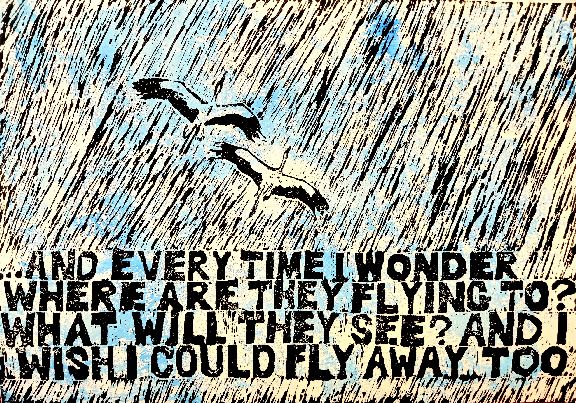
Image by Marta Adamowicz
"How to Talk About Migrations: Current Academic Research in Migration Studies and its Relevance for School Curriculum in Scotland and Further Afield" (RSE)
In our two-year long Royal Society of Edinburgh-funded project "How to Talk About Migrations: Current Academic Research in Migration Studies and its Relevance for School Curriculum in Scotland and Further Afield," we explored how the theme of migration is taught within Scottish educational system and abroad, and what can be done to introduce school children to this topic in a comprehensive, creative, and intellectually stimulating way. In order to do so, we collaborated with teachers, artists and local cultural heritage institutions, such as the Hunterian Museum, which hosts a number of exhibits related to history of migration in Glasgow. Please check our project website for more: How to Talk About Migration

"The River Runs Through It: emotions, perceptions, memories on both sides of the Sava River" (IDEF)
Focusing on literary and cinematic representations of rivers in the contemporary Balkans, this project is based on Mirna Solic's research investigating how creative approaches to natural spaces, specifically rivers, contribute to understanding of complex social transformations and contentious issues. These include war-time traumas (rivers as anonymous graves and sites of wartime atrocities), changing post-war identities (divided communities), de-industrialisation and environmental awareness; local and global migration (rivers as transit points on global and local migration routes).
“The river runs through it: emotions, perceptions, and memories on bot sides of the Sava River” (2024/2025), was a spin-off initiative focusing on the Sava River region, which is currently a triple border (interstate, EU, Schengen), and affected by the above-mentioned issues. In partnership with a local cultural heritage partner (The Brodsko Posavlje Museum The Brodsko Posavlje Museum), project participants were invited to share memories, ideas, and experiences, and be empowered to create their own narratives of the river in creative and non-confrontational ways.
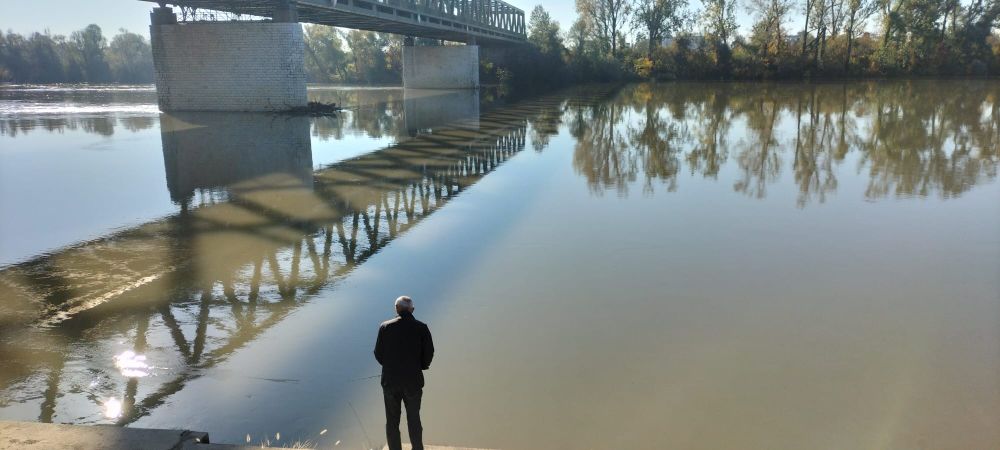
The project was generously supported by Impact Development and Evaluation Fund (IDEF; University of Glasgow) and The Brodsko Posavlje Museum (Slavonski Brod, Croatia) in-kin and logistical support. We are looking forward to our future collaboration!
Below are some of the photos from our walkshops (October 2024). A bilingual (Croatian/English) photo-essay featuring stories and reflections shared by our participants, as well as photographs from private and museum collection will be published soon.
The project was featured on the European Heritage Days website, as one of the projects short-listed in 2025 competition: European Heritage Days 2025
For more information as well as possible collaboration and exchange of ideas on this and similar topics in relation to themes at intersections of environmental humanities, migration&displacement and post-conflict studies, please contact Mirna Solic (mirna.solic@glasgow.ac.uk ).
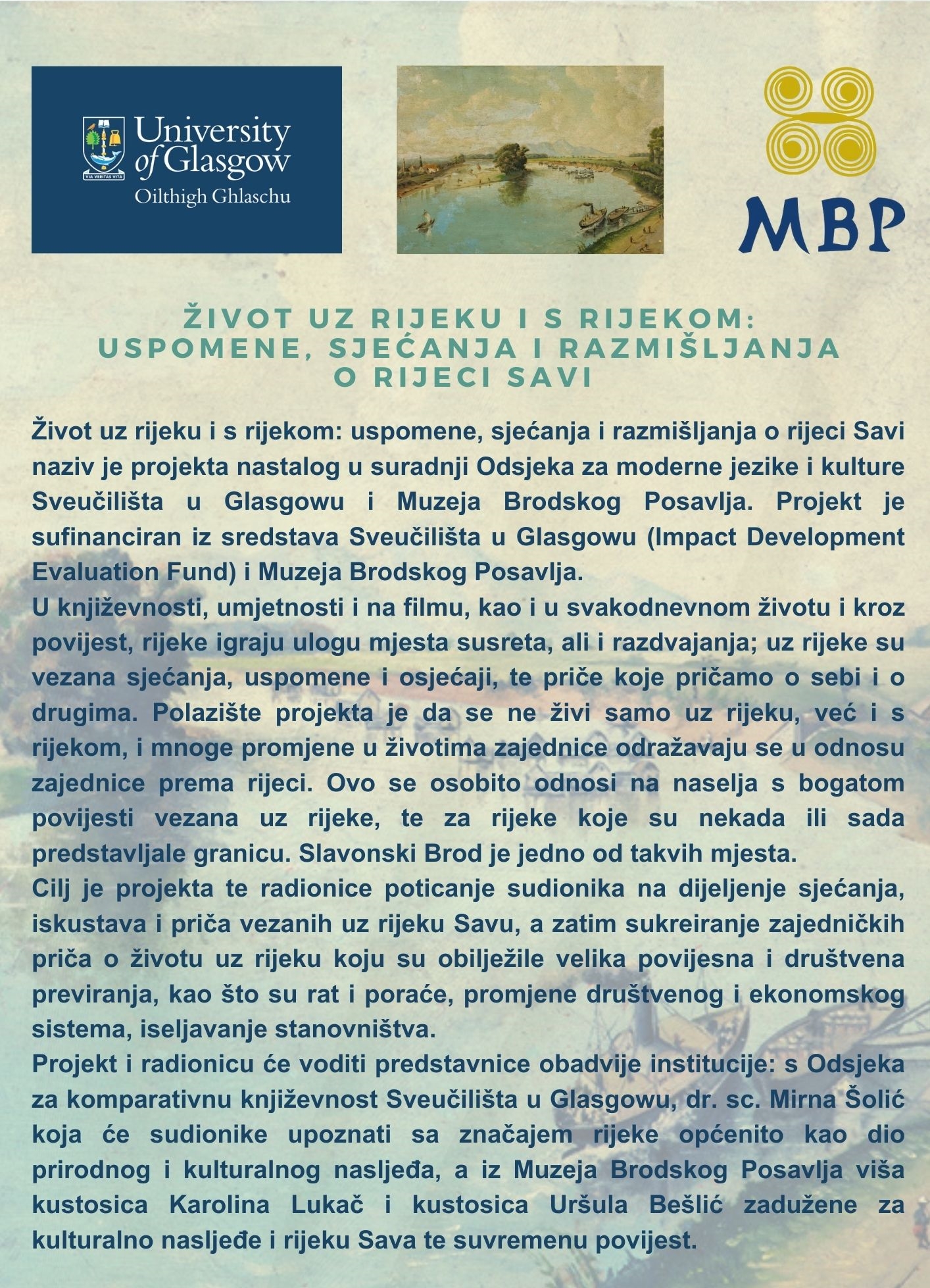
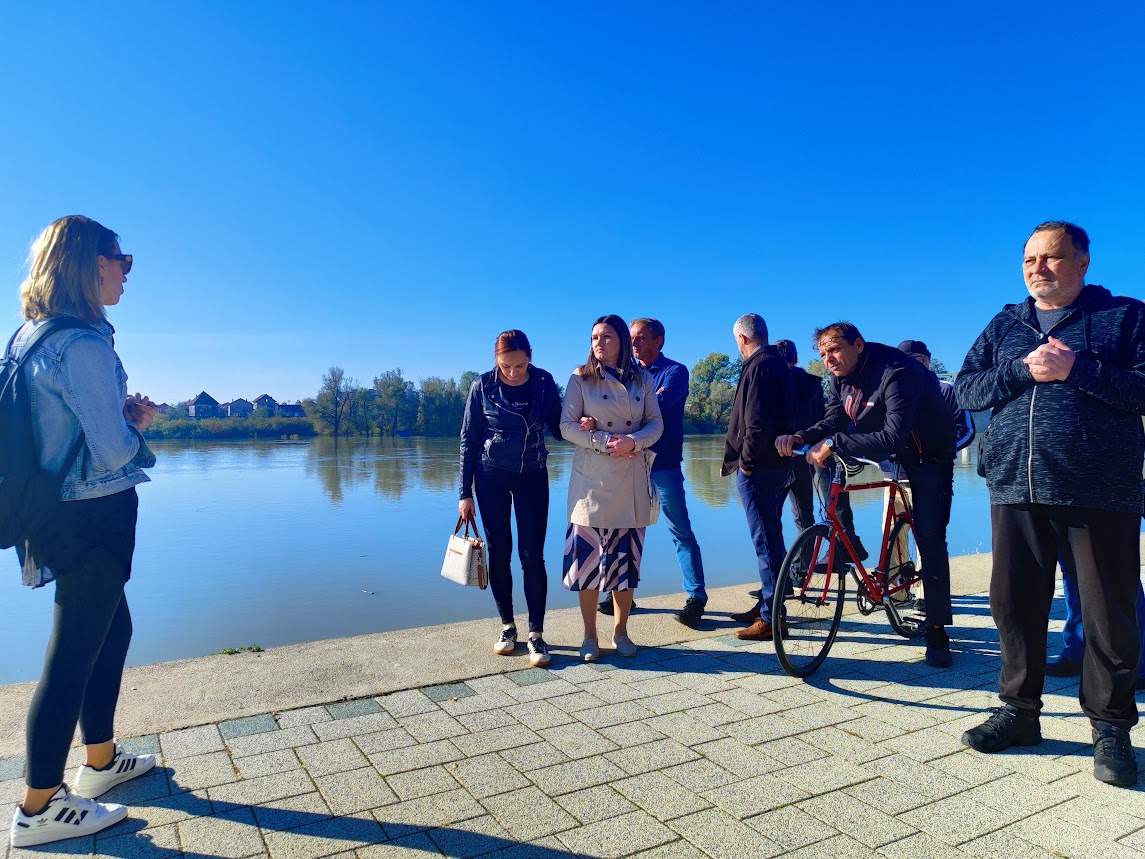
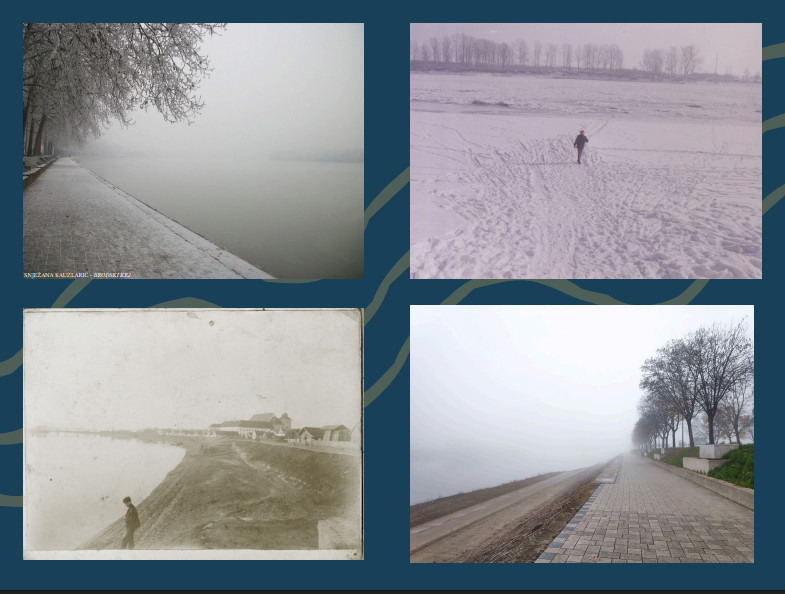
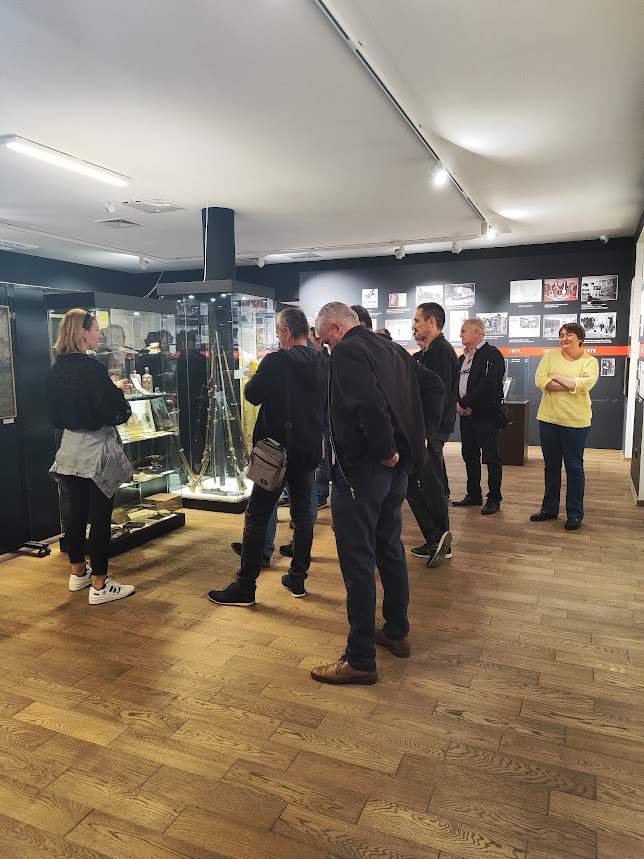
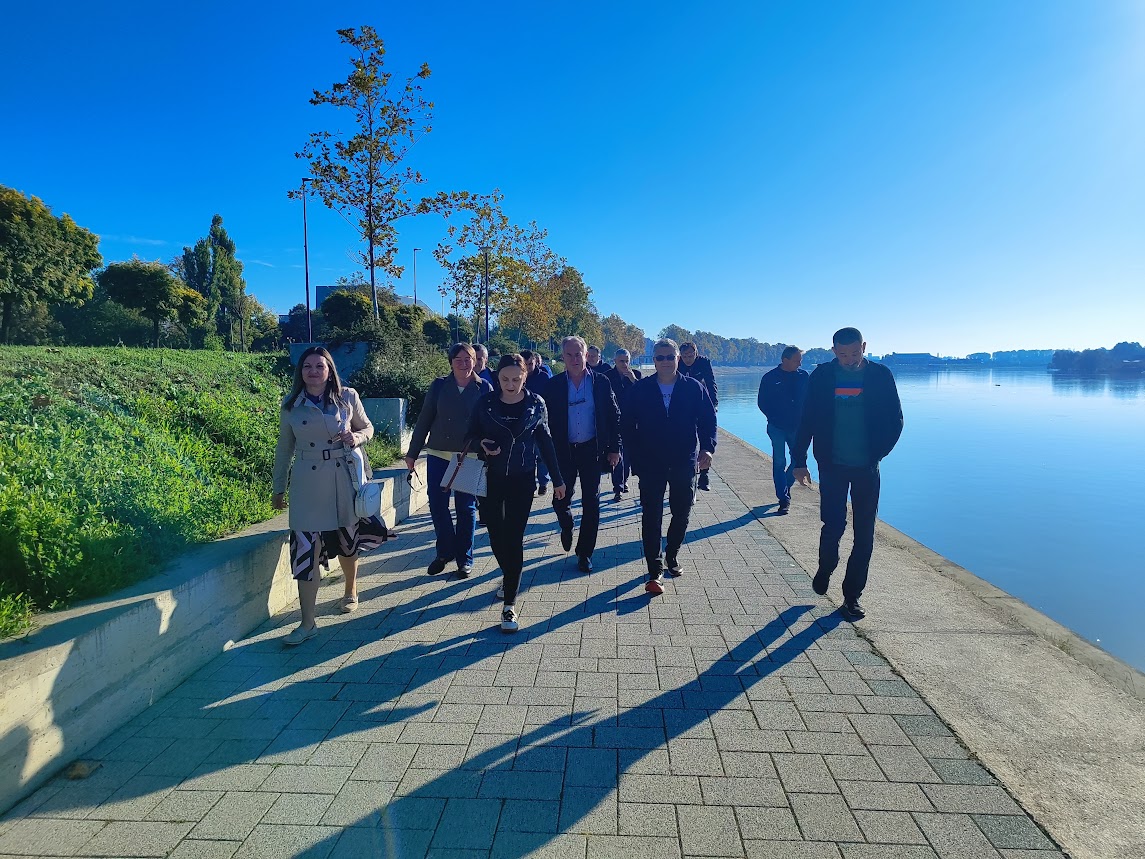
"Home as Story, Stories of Home: Transformations of Belonging" (The CIVIS Open Lab project)
The CIVIS Open Lab project “Migrant Storytelling on Home and Belonging as a Transformative Tool” is an international collaboration between the University of Glasgow, The University of Witwatersrand (Johannesburg), and The Universidad Autónoma de Madrid, together with refugee- and migrant- support organisations CEAR (Spain), Migrant Voice, and The Windybrow Arts Centre (Johannesburg). Its aim is to empower refugees and displaced people to tell their stories through participatory arts, countering stereotypes and fostering empathy.
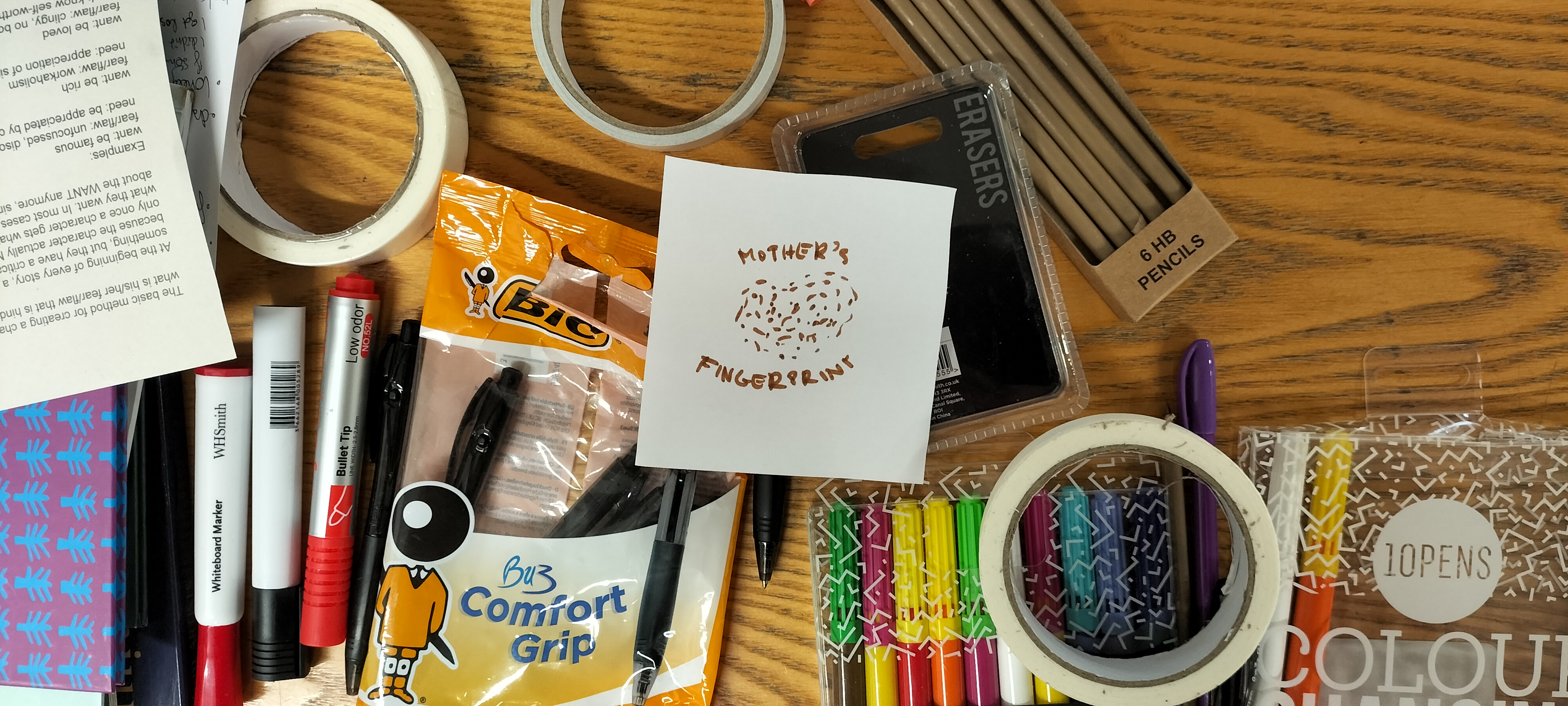
Between May and August 2025, workshops took place in Madrid, Glasgow, and Johannesburg with refugees from various countries like Russia, Ukraine, Afghanistan, Iran, Sudan, or Zimbabwe, now living in Spain, South Africa, and the UK. Participants reflected on “home” and “belonging” as both physical spaces and emotional experiences, expressing the trauma of displacement and the resilience of rebuilding. Activities were structured around narrative elements—character, object, plot—while allowing freedom of expression in multiple languages.
The project’s main outcome is a collective eBook compiling 60 contributions—textual, oral, visual, and non-verbal—such as drawings, photos, textiles, and other creative forms. Beyond artworks, the project highlights both shared and contrasting contexts of refugee reception in Europe and South Africa. Despite different asylum systems and resources, participants voiced remarkably similar themes of memory, food, tradition, safety, and identity, underscoring migration as a global human experience.
Below are some of the photos from our Glasgow workshops conducted in collaboration with our partner Migrant Voice.
The project was also included in Glasgow Doors Open Days Festival Glasgow Doors Open Days Festival (18-21 September 2025), featuring buildings, trails, events and talks on Glasgow’s architectural and cultural history, and promoting diversity and inclusivity of Scotland's biggest city.
For more information on this project, as well as expressions of interest in collaboration on this or similar projects, please contact Mirna Solic (mirna.solic@glasgow.ac.uk), Elwira Grossman (elwira.grossman@glasgow.ac.uk ) or Nina Ivashinenko (Nina.Ivashinenko@glasgow.ac.uk ).
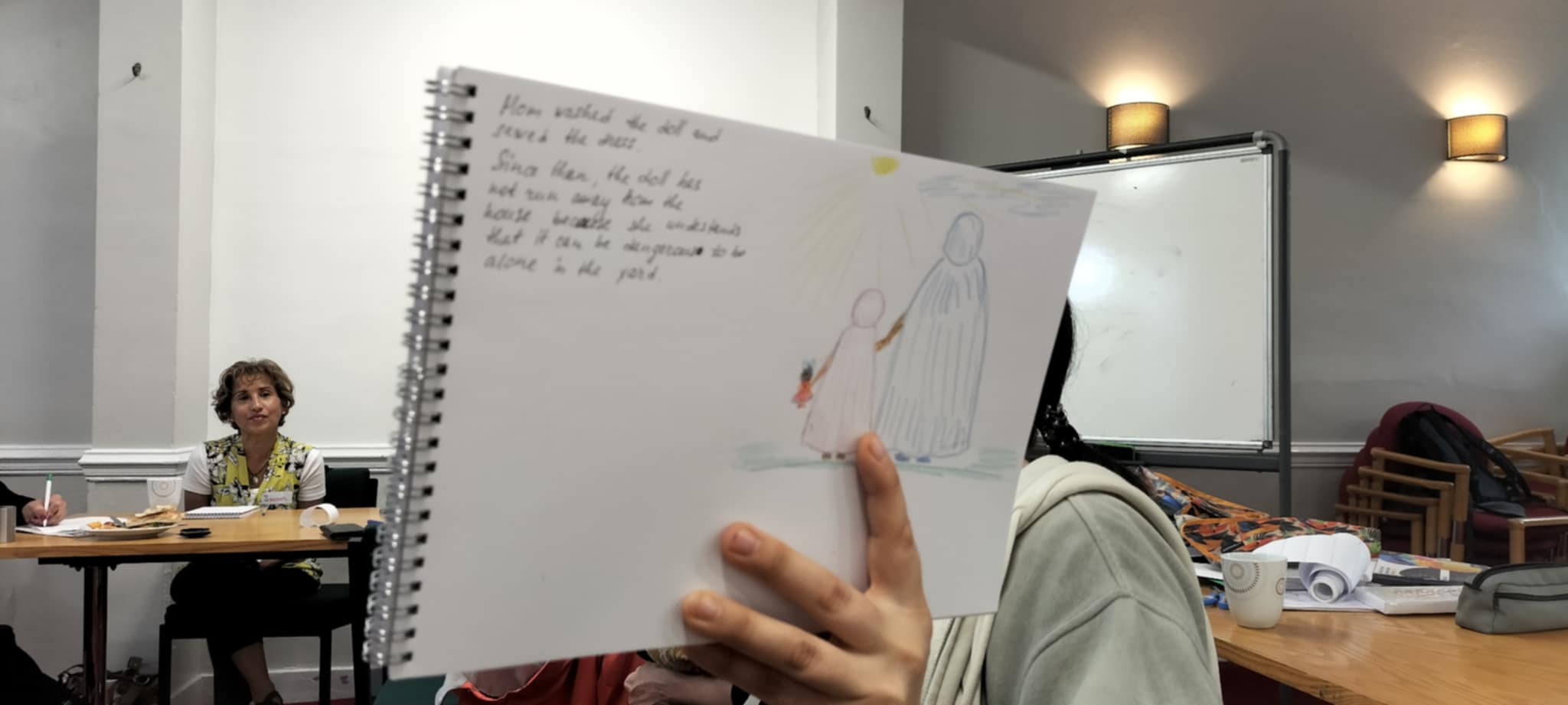
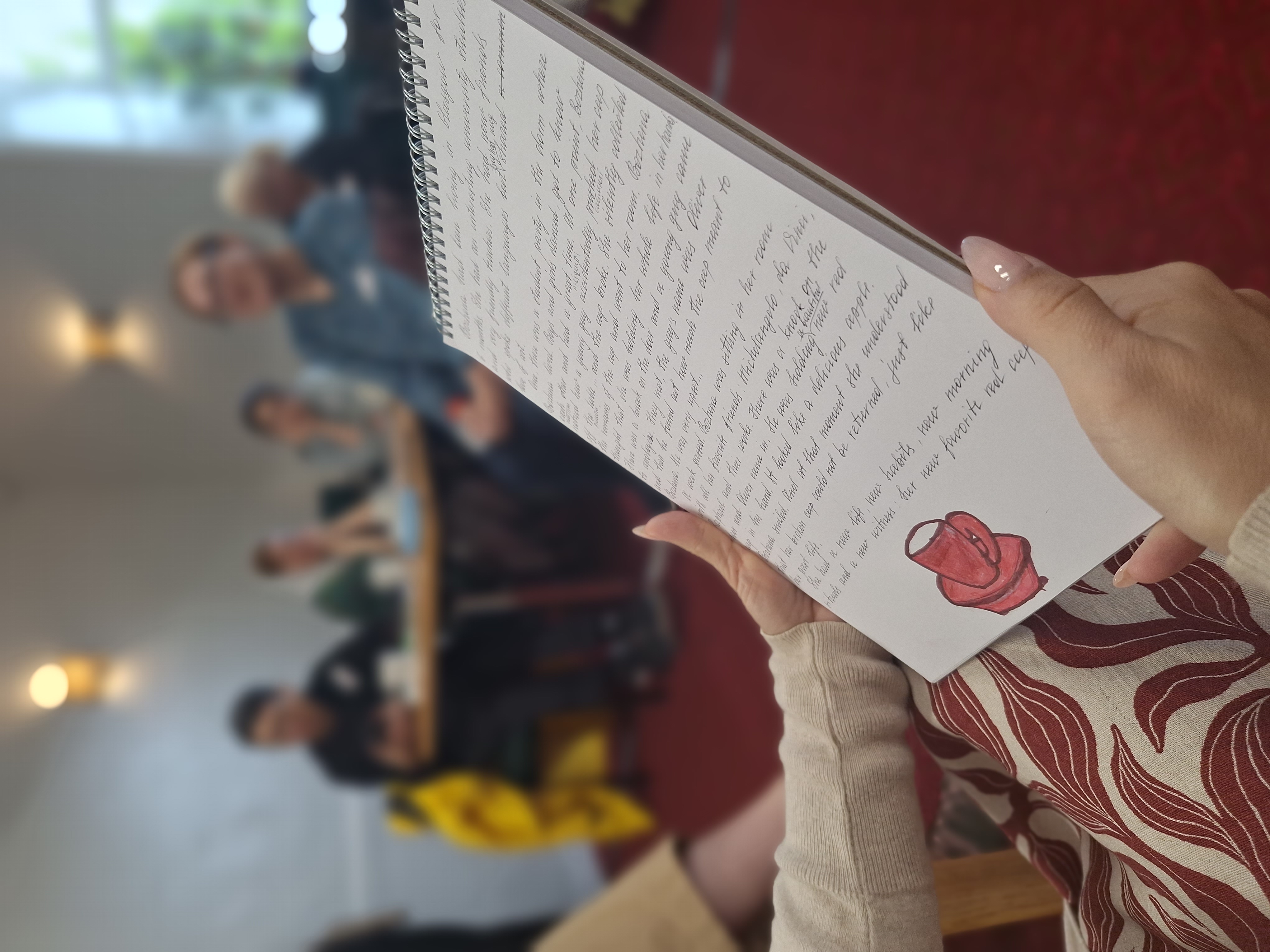
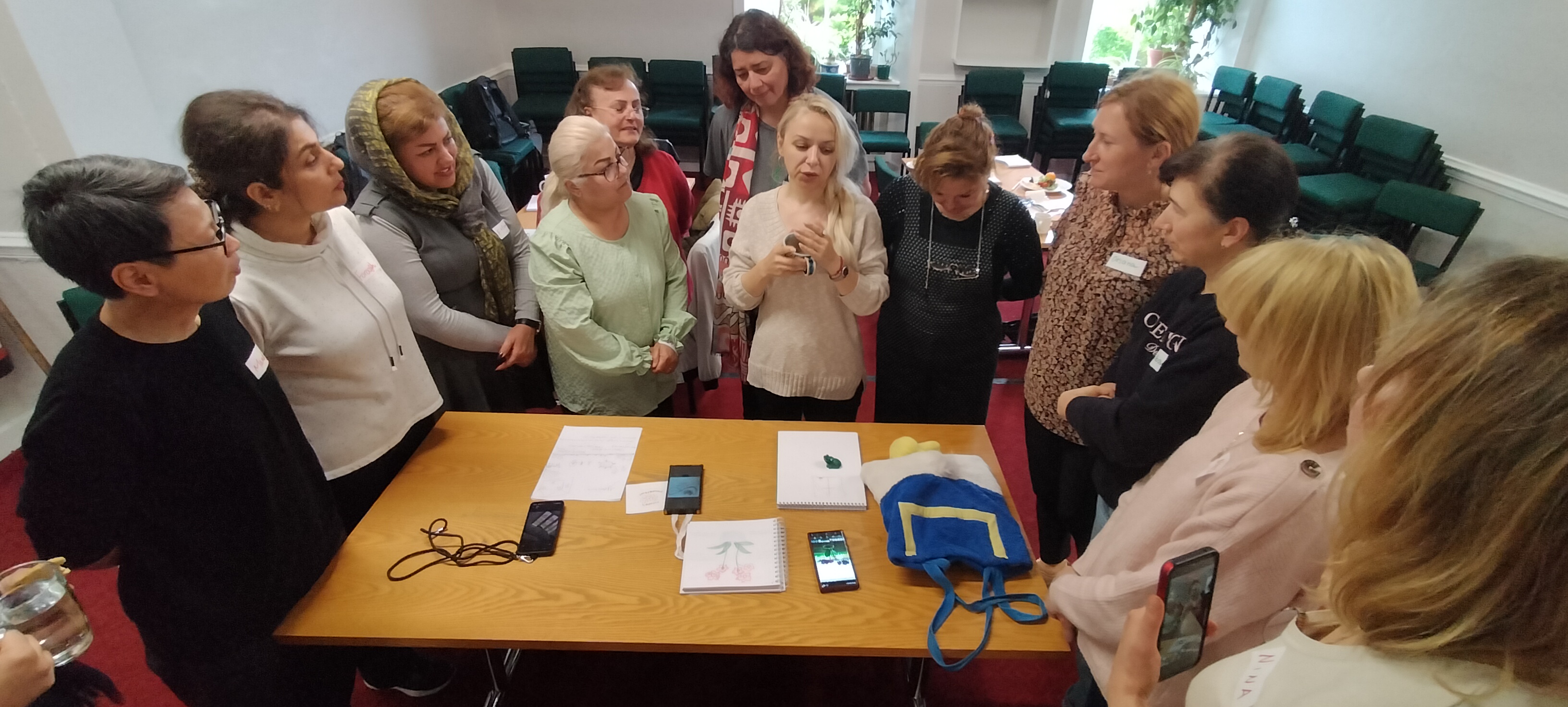
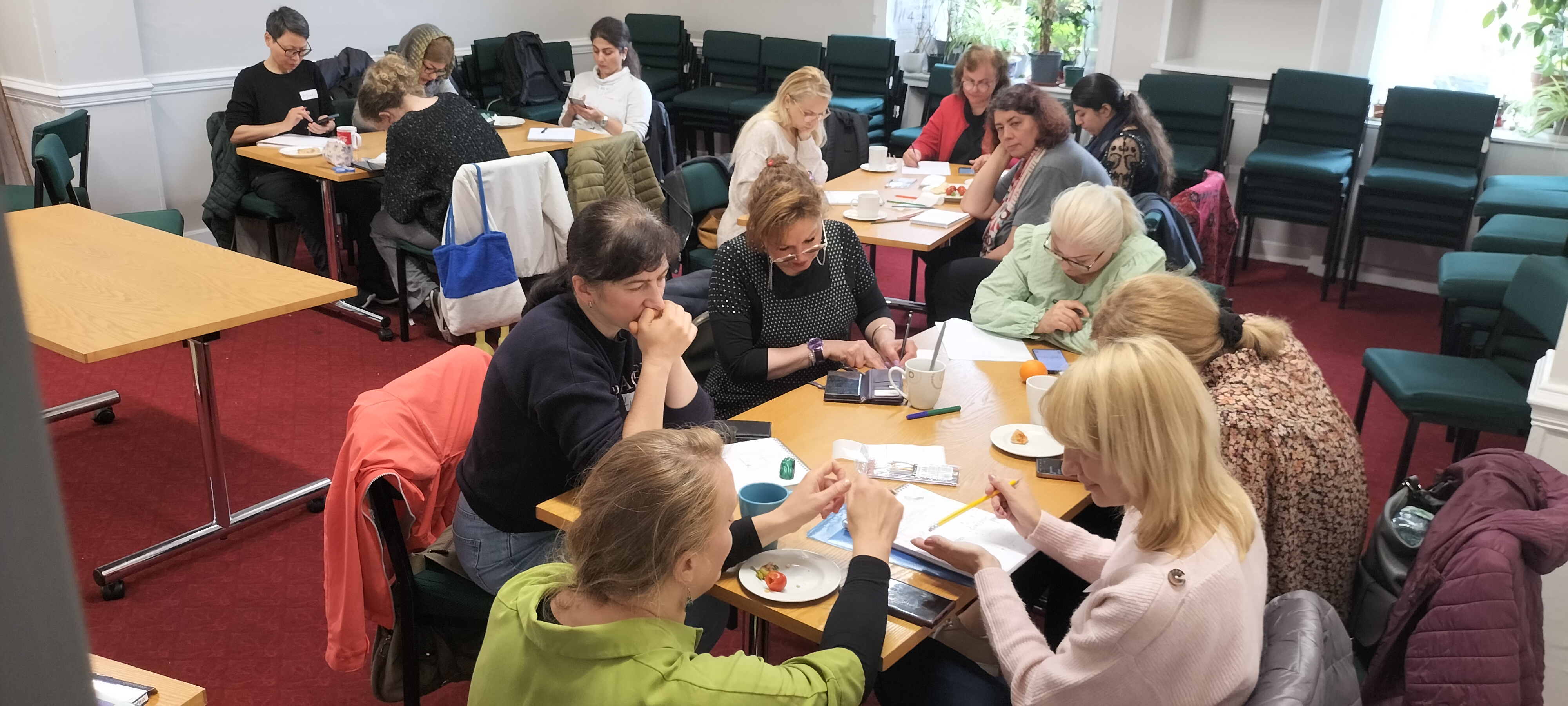
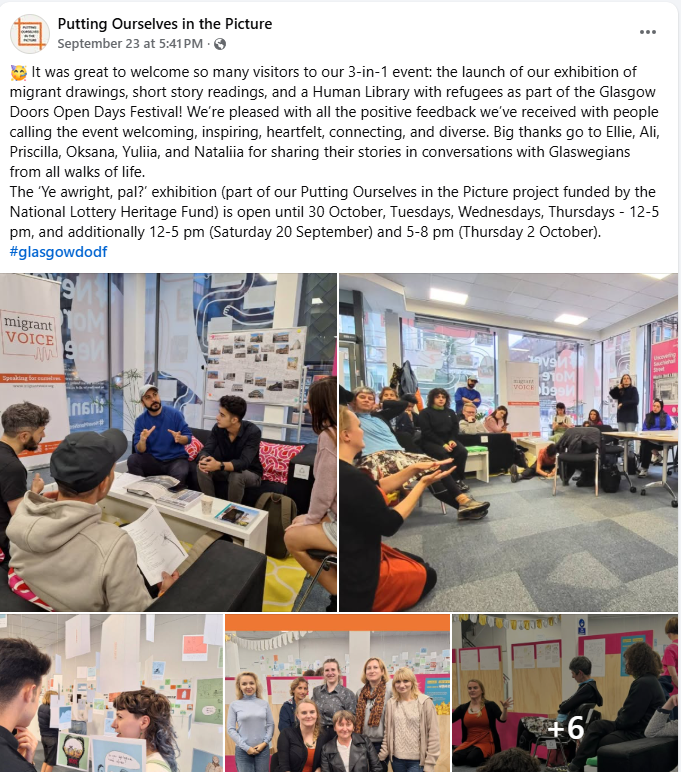
2025 Events
Music, Exile and Transnationalism: Rethinking Canons, Meanings, and Connections
26 February (Wednesday), from 14:00-15:30 in Hetherington Building, Room 118
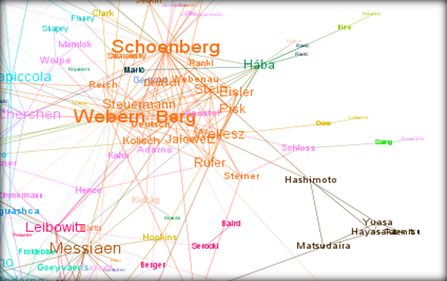
Eva Moreda Rodríguez (Music): Bringing ‘neglected’ and ‘suppressed’ music back to contemporary audiences
The present contribution is an account of decade-long experience in researching the music and lives of the composers who left Spain under the Franco regime (1939-1975), and of collaborating with a range of performers and institutions to bring back some of this music to concert halls and recording studios. The presentation will explore how the relative marginality of music with respect to other arts such as literature and painting both within Spanish culture and in the Spanish Republican exile and discourses that attempt to rehabilitate its victims can pose challenges in terms of visibility and support but also provide opportunities in terms of reimagining the canons and repertoires of Spanish music.
The presentation can be accessed here: Bringing neglected and suppressed presentation
Björn Heile (Music): The Dodecaphonic Diaspora
In this talk, Social Network Analysis will be used to chart the interconnections between serial composers within and between intersecting networks, in a bid to rethink the way musical ideas are exchanged beyond usual notions of dissemination from centre to periphery. Serialism is a form of modernist composition that was developed by Arnold Schoenberg (1874-1951) in 1920s Vienna and that involved a non-hierarchical, rational order of the twelve pitches in the Western tonal system (hence “twelve-note technique” or “dodecaphony”). Due to Schoenberg’s Jewishness and the avant-garde nature of the music, Schoenberg and his students – the so-called Second Viennese School – were mostly forced to emigrate when the Nazis came to power. As this presentation will argue, the transnational networks – the dodecaphonic diaspora – consisted of many nodal points – local, regional or national centres – which tended to be intimately interconnected, while not always deeply embedded in their respective host cultures.
The presentation can be accessed here: The dodecaphonic diaspora presentation
We are looking forward to seeing you in the workshop!
Please register by clicking on the https://www.eventbrite.co.uk/e/music-exile-and-transnationalism-tickets-1221279964249?aff=oddtdtcreator
A visual grammar of migration: Multilingual narratives for all (Dr Izaskun Elorza, University of Salamanca, Spain)
10 February (Monday), from 15:00-16:30 in ARC, 242 Meeting Room
Through a practical approach to visual and multimodal fictional representations of migration, this workshop will showcase some aspects of how migrants and migration are represented in these narratives. With a focus on the resources used to narrate stories in texts in which verbal language can be just one of the modes employed (or not employed at all, or maybe employed multilingually), meaning making will be approached from a semiotic perspective that transcends specific languages and cultures.
Stories that are narrated by combining visual and verbal “languages” are rich, complex, and allow authors to play with the explicit, the implicit, the ironic, or the shocking, in ways that may be interesting but also demanding for readers. Multimodal narrations of migration that are emotionally moving often reveal a skilful mastery of how visual and verbal resources have been combined, as a professional artistry, and the session will provide opportunities for discussing relevant examples. During the workshop, attendants will also have an opportunity to explore picturebooks about migration produced by a multilingual group of master’s students, which they created for a twelve-week project-based module on visual grammar. These picturebooks constitute a good example of how becoming more aware about the resources we can use for representing migrants and migration in discourse is essential for embracing a critical attitude not just about existing representations of migration, but more importantly as prosumers, teachers, or mediators in multilingual contexts.
We are looking forward to seeing you in the workshop!
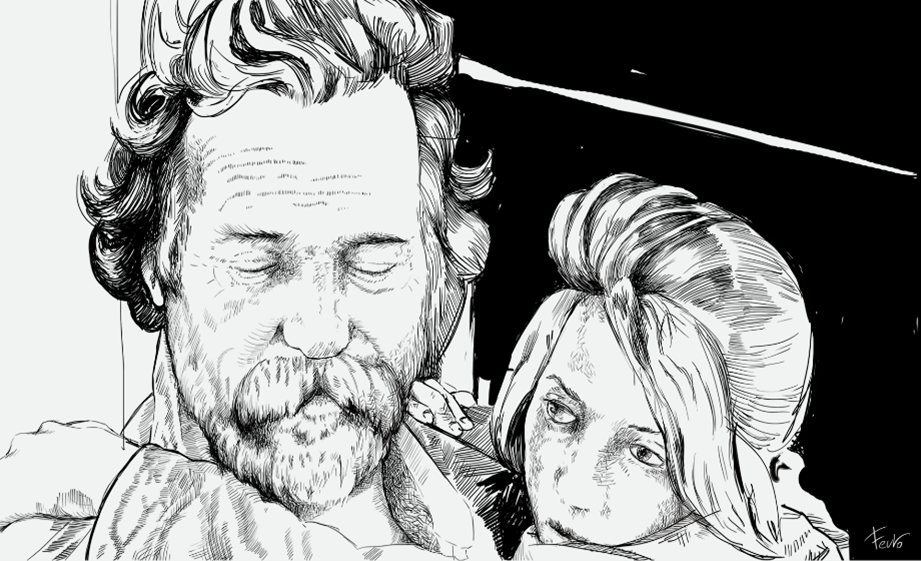
Light refreshments will be provided. Please register by clicking on the https://www.eventbrite.co.uk/e/a-visual-grammar-of-migration-multilingual-narratives-for-all-tickets-1232225322109?aff=oddtdtcreator
Izaskun Elorza is a Senior Lecturer in English Language and Linguistics at the University of Salamanca (Spain), where she leads the ‘Linguistic Descriptions of English’ (LINDES) Research Group. She is concerned about the applications of linguistics to study discourse, mainly from the perspective of multimodal discourse analysis, corpus-assisted analysis and systemic functional linguistics. Her ongoing research focuses on the analysis of the representations of migrants and migration in children’s picture books as part of the MIAMUL Project (Children's picture books about migration: Multimodal analysis and applicability to multicultural and multilingual environments), which aims to study migration discourse in picture books and people’s perceptions about them, in order to produce tools for educational purposes about socially relevant concerns, such as migration, diversity or social justice as represented in picture books.
Jan Stepek: From Gulag to Glasgow
(memories, migration, and creativity through the lens of family history research)
15.00 - 17.00pm; Wednesday, 5 February 2025
The Old Language Centre Library, Hetherington Building (ground floor)
Join us for a captivating talk by Martin Stepek about his recent book chronicling the journey of his father, Jan Stepek, from Gulag, across Asia and Europe, to Britain. Drawing from extensive interviews with his father and meticulous research into his family’s history, Martin brings this poignant story to life.
In February 1940, Jan Stepek, then a 17-year-old boy, was forcibly taken from his home in Poland, along with his mother and sisters, to a Soviet Gulag on the edge of the Arctic Circle. In 1942, following the change of political circumstances, he began his 6,000-mile journey to what is now Kazakhstan and Iran. Barefoot, diseased, and malnourished, he lost his mother on the way. Jan Stepek eventually joined the Polish Army, and then Polish Navy, taking part in the Normandy landings and the North Sea landings in Germany. Like many other Polish exiles, he emigrated to Britain, finally settling in Scotland, where he became a successful businessman, with lifelong commitment to philanthropy and helping communities in need.
The ArtsLab hosts the event as an opportunity to provide information about Martin Stepek’s rich archive of published and unpublished writings, which he is happy to offer as potential resource for a research project. This presents an excellent opportunity for students and colleagues interested in memory studies, twentieth century history, migration studies, auto/biography and Central and East European studies to engage with a compelling narrative and explore the intersections of personal and historical memory.
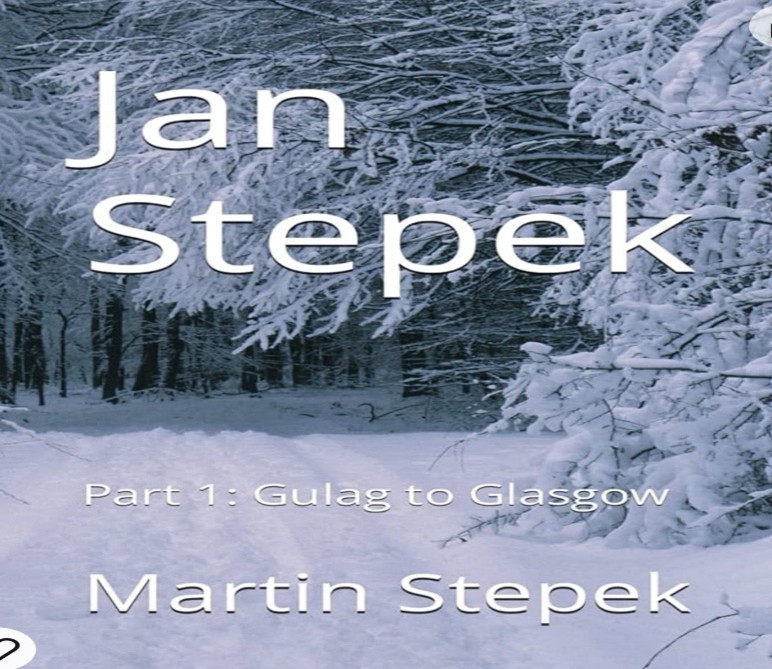
Martin Stepek is a businessman and a writer, focusing on mindfulness, poetry and Polish heritage in Scotland. He is one of Scotland’s most respected teachers in mindfulness. Find out more about Martin at Scottish Book Trust
Light refreshments will be provided. For catering purposes please register your interest via the Eventbrite by clicking HERE
2024 Events
Rolling with The Punctures: A Mike Elm Talk Facilitated by Dr Esa Aldegheri
This event is part of Refugee Week 2024
Time: Tuesday, 19 June 2024 between 7-9 pm
Location: The Alchemy Experiment, 157 Byres Rd, Glasgow, G12 8TS, UK
An action-adventure-comedy-tragedy story of Mike Elm's 8,000km bumpy bike ride featuring tunisian sandstorms, balkan mountains and coming face to face with the climate and refugee crisis. The talk will be followed by a discussion facilitated by author and academic Dr Esa Aldegheri. Tickets are £5 with all profits going to support the Survivors of Human Trafficking in Scotland (SOHTIS).
Tickets and full details:
https://rollingwiththepunctures.wordpress.com/2024/05/14/rolling-with-the-punctures-live-in-glasgow/

Diversity, Inclusion and Social Justice: Migration in Children's Picture Books and Refugee Children's Drawings
Time: Friday, 31 May between 2.00-3.30 pm
Location: Clairce Pears Building, Seminar Room 102
In this workshop, our guest speakers Dr Izaskun Elorza and Dr Patrícia Nabuco Martuscelli will explore the theme of diversity, inclusion, and social justice by focusing on children’s literature and arts produced by/about refugee children. Dr Elorza’s How do picture books represent journeys of migration? Exploring types, stages and recurrent patterns discusses a large sample of picture books (in English, but also wordless visual graphic narratives) published in the last decades featuring migrants’ experiences, including not only human migration, but animal migratory cycles as well. In her presentation How do Venezuelan refugee children perceive their migration journeys? An analysis of refugee children’s drawings, Dr Nabuco Martuscelli will discuss the literature on children featuring in International Relations
scholarship and visual methods to illustrate how Venezuelan migrant children living in Brazil negotiate their forced displacement and migration journeys (as part of the virtual exhibition "Fronteiras da Infância: Migração e Refúgio sob o olhar da criança" / Borders of Childhood: Migration and Asylum under the gaze of the child).
Dr Izaskun Elorza is a Senior Lecturer in English at the University of Salamanca & Associate to CLIP, School of Education, University of Glasgow, and leads the MIAMUL project.
Dr Patrícia Nabuco Martuscelli is a Lecturer in International Relations and Co-director of Migration Research Group at the University of Sheffield.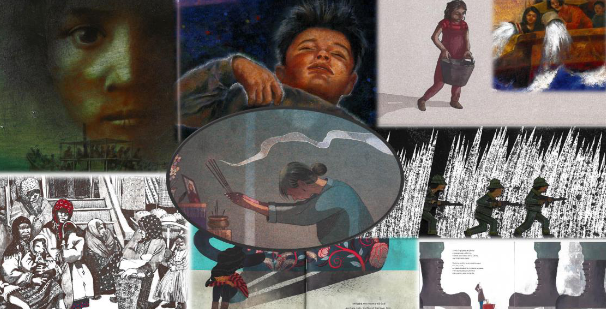
A Global Diaspora: The Re-Imagined Ideentity of Diasporic Writers (in the Project exiledwriters.co.uk)
Time: Thursday, 25 January at 3pm
Location: 916 Adam Smith Building
By focusing on the selected texts published on the Exiled Writers project website, the seminar addresses diasporic imaginary spaces and symbols which convey the migrants' rage, helplessness and humiliation while deconstructing stigmas imposed by media outlets and mainstream official narratives, usually labelling migrants as pathogenic beings and 'wasted lives'. The comparative analysis of migrants' writings reveals that despite their racial, ethnic, and religious differences, these writers use similar symbols and themes to portray their experiences of displacement, their newly acquired identities and (non)belonging. The online publication of their writings also promotes the creation of a dynamic transnational, or postnational space, that challenges widespread stereotypes and official labelling.

Francisco Fuentes Antrás is a full-time Lecturer in the Department of English Philology at Universidad Autónoma de Madrid, where he teaches courses on English literature and cultural identity. In 2012 he graduated in English Philology and holds a Master’s degree in Hispanic and Comparative Literature from University of Kent. In 2020 he earned a PhD in Comparative Literature from Universidad Autónoma de Madrid, obtaining the International Distinction award. He is interested in the study of English literature and world literature from an interdisciplinary and transcultural perspective. His current research focuses on the concepts of resistance, identity, migration, racial issues, borders, and the transcultural connections in the twenty-first century short story in English.
On the edges of despair, grief and hope: Life stories of domestic migrant workers
Time: Thursday, 12 October at 10 am (as part of Migration and Displacement on Screen class)
More than half a million new migrant workers leave Indonesia and the Philippines every year via official channels to work overseas. Most of them are women and they work as live-in domestic helpers in the Middle East, or in other Asian economies, in order to send much-needed remittances to their families. However, domestic migrant workers (DMWs) do not go overseas by choice but by necessity. They are faced with a grim choice: if they stay at home, they will not be able to support their children’s education and give them a better future. And if they go overseas, they will have to endure loneliness and more or less permanent separation from their children and other loved ones, as well as the stigma associated with their migrant worker status.
In this talk, Professor Hand J. Ladergaard will present some of the research he has done with domestic migrant workers in Hong Kong, Indonesia and the Philippines over the past 15 years. As well as being a volunteer at two migrant worker NGOs, he has collected more than 500 narratives documenting the lives and experiences of migrant women. He argues that DMWs live on the edges of despair, grief and hope. The analyses will focus on stories of despair and grief: many migrant women experience exploitation and abuse and go back to their home countries deeply traumatised. We will analyse and discuss the women’s testimonies about their lives and try to gain a deeper understanding of why they go overseas, why they stay with abusive employers, and why they are reluctant to go home until they have fulfilled their mission.
We will also look at stories of hope. What keeps the women going against all odds is the hope that they will be able provide for their children’s education and thus give them a better future. For better or worse, as long as their work will benefit their children, they are prepared to endure almost any humiliation.
Hans J. Ladegaard is Professor and former Head of the Department of English and Communication at the Hong Kong Polytechnic University. His research interests include intercultural communication, language attitudes and stereotypes, narratives of migration, and discourse analysis. He has been involved in research and social activism for and with Indonesian and Filipina domestic migrant workers since 2008. He is Co-Editor-in-Chief of Language and Intercultural Communication (Routledge).
2023 Events
"In my world... fostering the awareness on the United Nations Convention of the Rights of the Child (UNCRC)"
In collaboration with RSE Young Academy of Scotland, teachers, artists and storytellers, we have launched a series of creative storytelling and filmmaking workshops with schools across Scotland in order to raise children, parents and educators' awareness of the UNCRC, identify good practices and innovative projects supporting children's rights around the globe, and emphasise diverse children's voices in Scotland and encourage their inclusion in policy making. The project is still ongoing, so stay tuned for videos and other creative materials designed by children across Scotland!

2022 Events
What kind of film would YOU write about migration? (UNESCO Rila Spring School, 11-13 May 2022)
A workshop in collaboration with Visualising War Project, University of St Andrews and RSE Young Academy of Scotland
We are surrounded by different popular depictions of migration, from films we watch to discussions on social networks we follow and photographs we see. All of them shape our identities and motivate us to discuss our values, in particular the shared ones, asking: How do we decide what these values are? Where do we get them from? Can we employ shared values to bring people together? And how do we do this?
The two-part workshop consists of a public talk pitched at young people (11+) and adults, setting out the role that films play in mediating our understanding of migration; and second, a workshop where participants will have the chance to experiment with different ways of narrating migration themselves, by working together to write a screen play for a film featuring a story of migration.

2021 Events
"How to Talk About Migrations: Current Academic Research in Migration Studies and its Relevance for School Curriculum in Scotland and Further Afield" (2020-2022)
In our two-year long Royal Society of Edinburgh-funded project "How to Talk About Migrations: Current Academic Research in Migration Studies and its Relevance for School Curriculum in Scotland and Further Afield," we explored how the theme of migration is taught within Scottish educational system and abroad, and what can be done to introduce school children to this topic in a comprehensive, creative, and intellectually stimulating way. In order to do so, we collaborated with teachers, artists and local cultural heritage institutions, such as the Hunterian Museum, which hosts a number of exhibits related to history of migration in Glasgow. Please check our project website for more: How to Talk About Migration

2020 Events
Budgeting, Organising and Running a Virtual Conference
Thur 10 Dec 2020, 4pm to 5pm, via Zoom. A recording is now available (access: t8&1s+XC) and you can download the Slides.
Led by Dr Brianna Robertson-Kirkland. Arranged by Mirna Solic .
This workshop will offer practical advice about how to organise and run and virtual conference, including what accessibility facilities need to be considered and budgeted, how to mitigate technology woes and how to keep a live, online event moving. Dr Brianna Robertson-Kirkland was part of the organising team that hosted the Spheres of Singing conference in May 2020, which featured contributions from around the world, including: 45 presentations, 7 workshops, 6 open discussions and 4 lecture recitals. She is also currently organising the British Society for Eighteenth-Century online conference due to take place in January 2021. She has also delivered live, online presentations for the University of Southern California, the Royal Conservatoire of Scotland Exchange Talk series and the University of Aberdeen and has built a wealth of experience in organising and presenting large-scale events online.
Reflecting on the film Britain on Film: Welcome to Britain (2019)
When: 4 Feb 2020, 5.30-7.30 (tea and biscuits from 5.00)
Where: Kelvinhall Lecture Theatre
Description: This compilation of footage portrays a range of experiences of people coming to England from 1902-1991. What emerges from these incredibly valuable films is a picture of a country in flux as a century of conflict, the end of Empire and the forces of globalisation challenged geographical boundaries. See Basque families fleeing the Spanish Civil War arrive in Southampton; Vietnamese children find sanctuary in Birmingham; a Jewish family escape the pogroms of pre-war Romania for a Derby suburb. Witness early multi-culturalism in London and Manchester, the stories of second generation immigrants amid racism and rioting in the ‘70s and ‘80s, and the traditions, restrictions and comforts of immigrant communities.
The film, lasting eighty four minutes, will be introduced by Dr Emily Munro from National Library of Scotland/Moving Image Archive. In our post-screening discussion, Tanveer Parnez of BEMIS Scotland will share her experience of working with and for ethnic minorities in Scotland. All are welcome to join and contribute to the post-screening discussion.
The trailer can be watched here: Welcome to Britain
This event is free of charge but because of a limited number of places for this event and catering purposes please confirm your attendance by RVSP to mirna.solic@glasgow.ac.uk
2019 Events
Let's get inspired! Mixing traditions and experiences at Christmas season in Scotland
Screening of Points of Arrival (dir. Chris Leslie, 3 min.) and Wigilia (dir. Graham Drysdale, 2016, 70 min.)
When: 12 December 2019, 13:00-15:00, including light lunch (12.30)
Where: 711 Adam Smith Building
Description: We begin our event with recorded memories of 95-year old Henry Wuga (as one of the stories featured in Points of Arrival), an outspoken campaigner for social justice and mutual understanding, who speaks regularly at schools and public events in the UK and in Germany. Arriving in Scotland as a teenage refugee from Nazi Germany, Henry went to school in Glasgow and afterwards began a successful career as a caterer. In telling his story, Henry draws unavoidable parallels with the lives and situations of contemporary refugees.
With its melancholy beginning but an uplifting end, Wigilia (Veegheelya), depicts a traditional Polish Christmas Eve celebration meal in a Scottish setting. The film shot in Glasgow on a micro budget, features Duglas T. Stewart, founder of BMX Bandits - Glasgow musical icons - and Kurt Cobains' other favourite band. The main character, Agata, is played by Iwona Głowińska. But if you expect a traditional clash of cultures, you are up to a big surprise as the film story challenges classical stereotypes and assumptions we all too often make about newly met strangers who come from other cultures than our own.
Following the request of the film’s director and producer, the screening fee will be donated to Bread Over Bombs, a charity organisation providing emergency food to people in crisis (http://www.breadoverbombs.org/).
Join us for a light lunch, the screenings and a post-screening discussion! Contact mirna.solic@glasgow.ac.uk
Let’s Get Involved: Scotland and Migration
When: 14 November 2019, 13:00-15:00
Where: Main Building, Room 132
We are delighted to host a talk by Dr Rami Ousta, Chief Executive Officer of BEMIS (https://bemis.org.uk/), the national ethnic minorities led umbrella body supporting the development of the Ethnic Minorities Voluntary Sector in Scotland and the communities that this sector represents. Dr Ousta will introduce the work of BEMIS, in particular its important role in supporting different artistic initiatives across Glasgow and Scotland, including its bespoke film series on the theme of migration, inclusivity, and human rights, participation of artists in music festivals, as well as numerous multicultural community-based events across Glasgow and Scotland. We will also use this opportunity in order to explore how activities of BEMIS could benefit young people of Scotland studying at the University of Glasgow, especially in the light of the recently announced initiative supported by the College of Arts called ‘dissertation with placement,’ which basically means writing an UG thesis in connection with an outside trustworthy institution whose work offers an interesting opportunity to explore the selected subject and establish closer links with view of prospective employment/internship or further research in the sector. Dr Ousta’s talk will be followed by a BEMIS-commissioned short film Welcome to Scotland. Coffee/tea and biscuits will be provided
Meeting Points: Migration and Displacement across Arts and Humanities
When/Where: 8 May 2019, Wolfson Medical Bldg, Gannochy Seminar Room 3
Description: Symposium with contributions from colleagues at the Universities of Glasgow, Gloucester, and Lisbon, and from non-academic organisations (Legal Aliens, London). Professor Susan Bassnett (University of Warwick/University of Glasgow) introduced the event and Professor Thomas Beebee (The Pennsylvania State University) led the concluding discussion. You can also download the Meeting Points Programme and Report.
Partners and Collaborations
Centre for Comparative Literature and Translation Studies; School of Modern Languages and Cultures, University of Glasgow
Glasgow Refugee, Asylum and Migration Network; University of Glasgow
Migrant Voice; Glasgow
The Migration Special Interest Group; University of Lodz, Poland
The European Irregularised Border Regime Network (ERIM); Institute of Ethnography, Zagreb, Croatia

